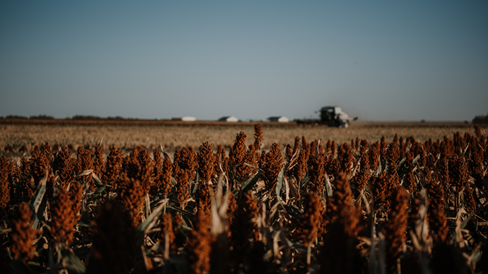Over the past 25 years, growers have seen a host of new herbicide technologies developed mostly for use in corn, soybean and cotton.
At least initially, these technologies greatly improved weed control in these crops. Although still very valuable, most have become less effective over time due to the development of weed resistance to the herbicides being used.
Over the last three years we have now seen three herbicide technologies—igrowth, Double Team and Inzen sorghum—enter the United States market. These technologies, although different from each other, have greatly increased the ability of growers to control grass in sorghum. These technologies, like those that have preceded them in other crops, will not be immune to the development of resistant weeds. Fortunately, these technologies have the benefit of knowledge gained in other crops on best management practices to greatly reduce the development of weed resistance to any given technology. Below is a list of some of the best management practices that should be used with igrowth, Double Team and Inzen sorghum:
• Always use a Group 15 preemergence herbicide (S-metolachlor, Acetochlor, Dimethenamid) to add a second mode-of-action for grass control.
• Control grasses when they are small, preferably less than 3 inches tall.
• Do not use a particular technology if grass biotypes are present in the field that are known to be resistant to the herbicide technology being applied.
• Manage johnsongrass and shattercane in and around the field so that flowering does not coincide with flowering of the herbicide technology sorghum. This is very important to prevent cross pollination between the sorghum carrying the herbicide tolerant trait and these grassy weeds.
• Following herbicide application, scout for any grass escapes. Control these grass escapes prior to their production of any viable resistant seed.
• Control all volunteer sorghum and off-types in the following year prior to flowering.
• In the crop following herbicide technology sorghum, use herbicides with a different mode of action than what was used in the sorghum. For example, if Double Team sorghum is used and FirstAct herbicide is applied, do not rely on an ACCase herbicide to control grass in the following crop.
These best management practices, which are also called stewardship guidelines, are discussed in more detail on our United Sorghum Checkoff website in a publication titled Prevent the Development of Grass Weed Resistance to igrowth, Double Team and Inzen Sorghum Technologies that is available at bit.ly/3kepj4i.
Following these suggested best management practices will go a long way to ensure that these technologies are effective for many years to come.
Editor’s note: Brent Bean, Ph.D., is the Sorghum Checkoff Director of Agronomy, Lubbock, Texas. For more information visit www.sorghumcheckoff.com.



